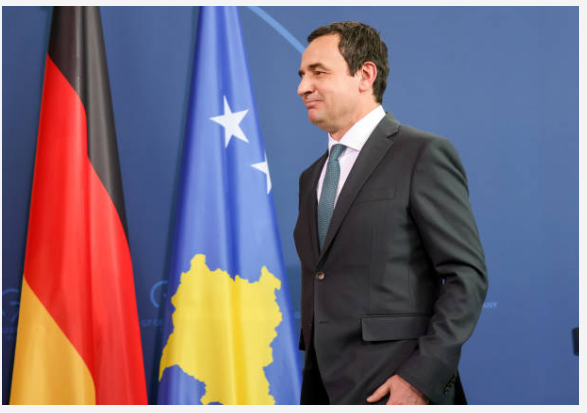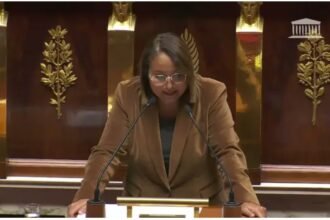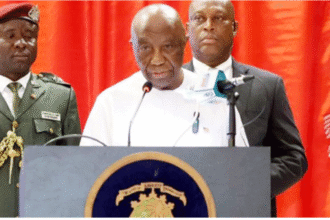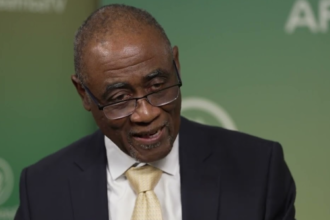By Dr. Alon Ben-Meir
Kosovo Prime Minister Kurti’s decision to close five parallel institutions for the predominantly ethnic Serbians in northern Kosovo can be justified based on three counts. First, the action is in accordance with the dialogue agreements of 2013 and 2015 that stipulated the closure of parallel institutions. Second, it is consistent with Kosovo’s constitution, and third, it asserts Kosovo’s sovereign rights to all of Kosovo, including the ethnic Serb-majority municipalities. That said, the closure raises several questions that Kurt’s government should have carefully considered before taking such an action.
Timing: Kurti’s decision to act at this particular juncture raises the question of whether it was motivated by domestic political considerations. I concur with Charles Kupchan, former director of European affairs at the US National Security Council, who stated, “For me, these are gestures and maneuvers at the level of internal politics, which may be good for the political fate of Kurti, but they are not good for Kosovo.” However, whether or not Kurti intended to take this such an action now to benefit politically at home, Kurti has inadvertently created the impression that the upcoming election in Kosovo, scheduled for February 9, 2025, played a role in his decision-making, and what benefit he may or may not engender remains to be seen.
Given the current tense environment, I maintain that, on balance, any benefit Kurti could reap is offset by acting now when he could have waited post-election. His actions have irked even the United States, France, Germany, and the United Kingdom, which have criticized Kosovo’s actions in the north. Even before Kurti closes these parallel institutions, he has already been at odds with the EU and the US because of his unilateral closure of six branches of a Serbia-licensed bank in northern Kosovo earlier this year as well as the currency exchange from the Dinar to the Euro.
Nationalism: Kurti, who is increasingly being painted as a nationalist, seems to show impatience in his pursuit of asserting and reasserting Kosovo’s independence, specifically in the predominantly ethnic Serb north. Kurti knows perfectly well that whether Serbia recognizes Kosovo or not, his country is independent and is recognized by more than 100 countries. I believe that sooner or later, Serbia, under new leadership, will conclude that Kosovo’s independence is irrevocable and will come to terms with its sovereignty. Belgrade’s recognition of Kosovo will be accelerated once Russia’s Putin, who vehemently opposes Kosovo’s independence, departs the political scene.
At this juncture, Kurti should focus more on the integration process with the EU by addressing domestic problems, including the economy, infrastructure, education, human rights, and healthcare, and bring them in line with EU standards, instead of antagonizing the very organization he wishes to join. By way of example, Kurti’s insistence on opening the Iber bridge has dramatically heightened the tension with the EU, forcing NATO’s peacekeeping mission in Kosovo, KFOR, to deploy additional assets from its Multinational Specialized Unit to the bridge, which divides Mitrovica into the predominantly Albanian south and the predominantly Serbian north.
Lack of coordination: Again, given the prevailing circumstances, any action taken by Kurti, regardless of how justified it may be, should be coordinated with the EU as long as it could create a negative ripple effect. This does not suggest that Kurti has no right to take such action; coordinating with the EU is necessary, mainly because of the close ties between the two sides and because the EU is involved in any developments connected with the Serbia-Kosovo conflict.
The US embassy in Kosovo was correct to reiterate last Friday Washington’s “concern and disappointment with continuing uncoordinated actions” taken by Pristina “that continue to have a direct and negative effect on members of the ethnic Serb community and other minority communities in Kosovo.” Interestingly, though, President Vjosa Osmani has emphasized, in her meeting with the US ambassador, Jorn Rohde, the need for coordinated efforts with allies, particularly the US, in developing a joint implementation plan for the opening of the bridge over the Iber River.
Although many Kosovar voices support the closure of these parallel institutions, including political science professor Dorajet Imeri, who said that the abolition of parallel structures should have happened a long time ago, he misses the central point here. It is not that Kosovo does not have the right to close these parallel institutions financed by Serbia; it is the need for coordination with the EU that matters. Kosovo, which seeks to join the EU, should adopt the EU’s operational procedures between the member states, which are based on consultation and coordination.
Sadly, Kurti’s persistent lack of coordination with the EU forced the latter to impose sanctions on Kosovo, which would not have occurred if Kurti had not put his nationalist tendencies ahead of Kosovo’s long-term interests. The US is not inclined to follow the EU’s footsteps and impose sanctions its own sanctions on Kosovo, but the US disenchantment with Kurti has been clearly expressed, and Kurti should take heed of this development. To be sure, the US is seeking cooperation to determine the most suitable timeframe from a security perspective to develop and act on a joint implementation plan. The US believes that this approach serves all citizens.
The resumption of Kosovo-Serbia dialogue: I maintain that Kurti’s government should now refocus its attention on the resumption of the dialogue at the level of chief negotiators between Pristina and Belgrade, as the EU is planning a new round of talks between the two countries. Although the EU spokesman, Peter Stano, has not provided a date for such a meeting, stating that the date would be made public in due course, the EU envoy for Kosovo-Serbia dialogue, Miroslav Lajcak, said that he would stay in Pristina to prepare the new round of dialogue without giving more details, suggesting that such talks are imminent.
Finally, it is important to note that the resumption of any dialogue between Kosovo and Serbia and its scope relies more on the EU than on the US. If Harris is elected as the next US president, I do not expect any discernable change in US policy concerning the Kosovo-Serbia conflict. However, if Trump is reelected, he will be influenced, to some extent, by Putin’s views on the Balkans and his desire to destabilize the region. Trump will likely be less supportive of Kosovo’s position, but not to the extent that he would reverse the US’ overall policy toward the Balkans in general and the US’ commitment to Kosovo’s independence.
In the final analysis, Kosovo’s fate and future are and will remain inexorably tied to the EU. For this reason, any government in Kosovo ought to think and behave as if it were an EU member state. In so doing, Kosovo’s integration process will proceed on solid ground instead of subjecting it to EU sanctions that psychologically, politically, and practically impede such a process.
The Closure of Parallel Institutions and Its Ramifications

Dr. Alon Ben-Meir is a retired professor of international relations, most recently at the Center for Global Affairs at NYU. He taught courses on international negotiation and Middle Eastern studies. He can be reached at alon@alonben-meir.com.
Leave a Comment








